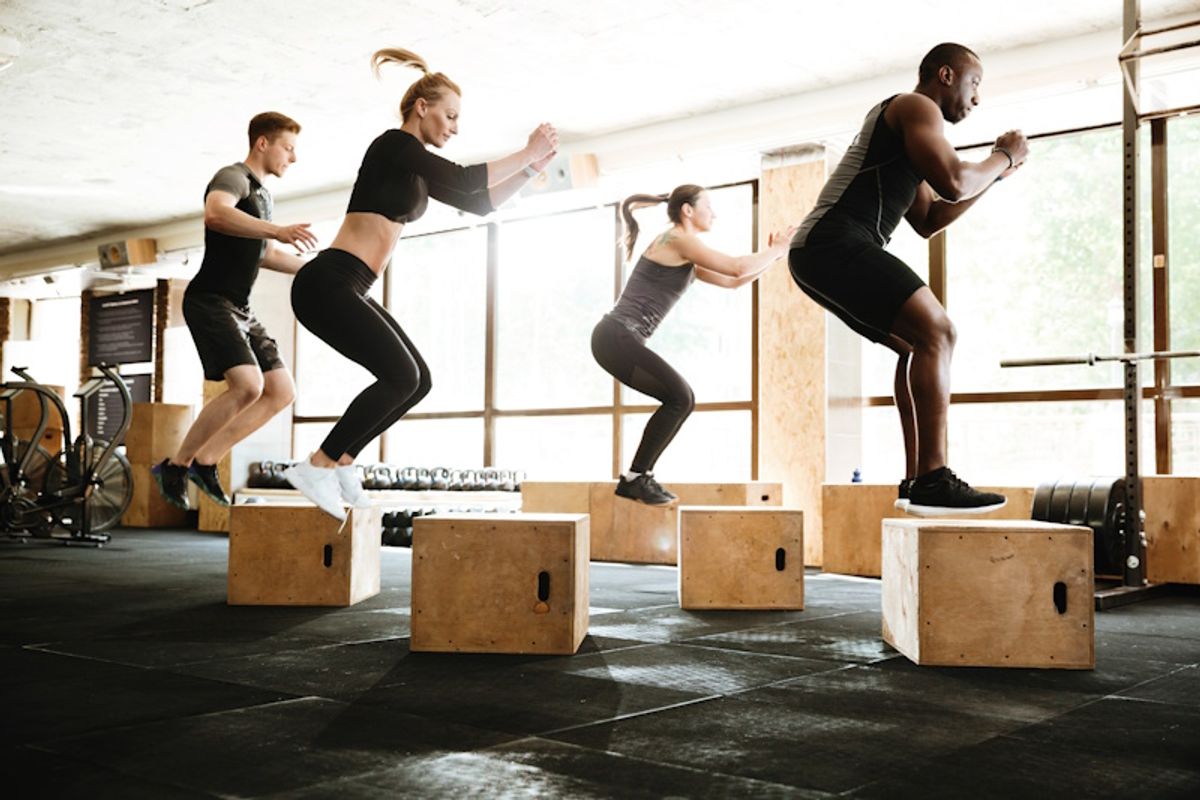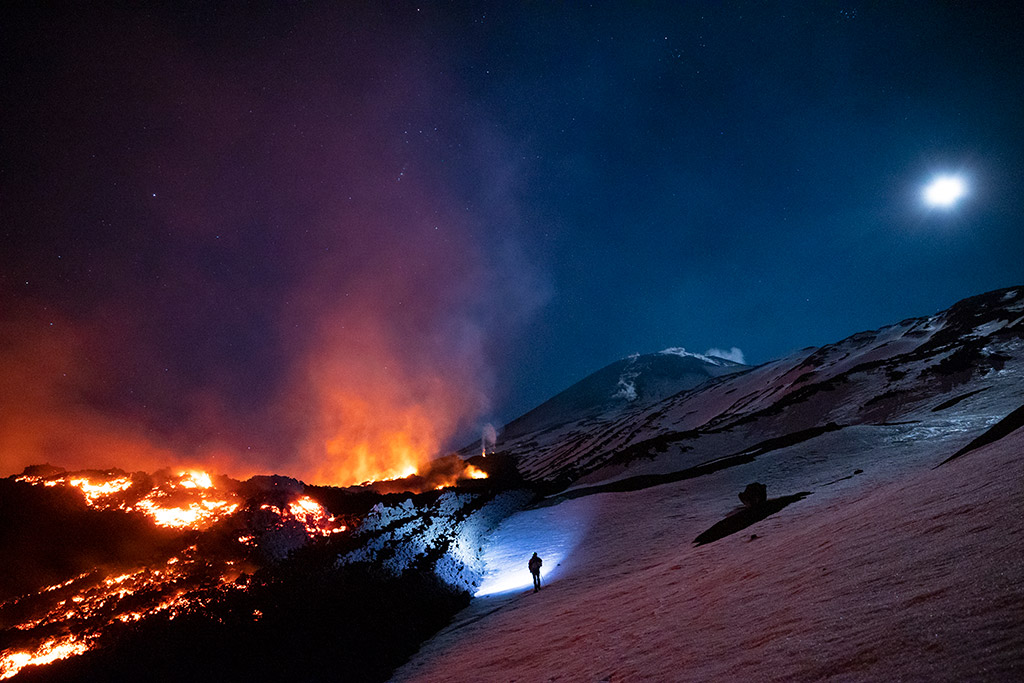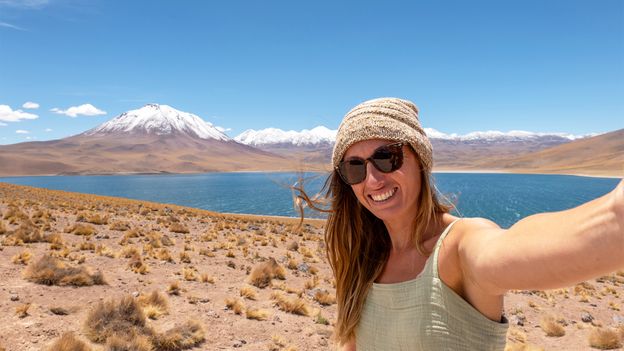How technology is helping to fuel wellness opportunities for travelers

As recently as five years ago, wellness could be classified as only a “niche segment” in travel, associated primarily with spa vacations and yoga retreats, said Muirgheal Montecalvo, founder and CEO of wellness travel booking platform Vacayou Wellness Travel, a PhocusWire Hot 25 Travel Startup for 2022.
Now, she said, it’s a “central theme.” The sector is expected to reach an anticipated value of $1.3 trillion in 2025 — nearly double its pre-pandemic peak of $720 billion in 2019, according to the Global Wellness Institute.
Travel tech leaders focused on wellness see even bigger things ahead, with technology giving an even bigger boost to the growing trends of wellness experiences for people as they travel and also for wellness tourism – entire trips built around health and wellness activities.
Hannes Boller is CEO of Boddy, a marketplace to help people find fitness and
wellness experiences while traveling and one of PhocusWire’s Hot 25 Travel Startups for 2024. Boller believes plenty of change is on the
horizon.
“We are [at] the beginning of a potentially revolutionary tech shift,” said Boller, whose company has grown from 300 partner studios to more than 1,500 in just 15 months. “Most of us can barely glimpse the possibilities for the next 12 months.”
The role of AI
The integration of wellness into travel – along with travel specifically for wellness purposes – is only accelerating with the help of artificial intelligence, Montecalvo said.
“AI, particularly generative AI, is revolutionizing how wellness is integrated into travel, making it significantly easier for travelers to prioritize their well-being while on the go,” said Montecalvo.
Vacayou has launched its own AI-based solution called TripFusion that Montecalvo said aims to create a seamless booking experience for users.
“This comprehensive platform will utilize artificial intelligence for personalized vacation recommendations,” said Montecalvo. “Wellness travel should be rejuvenating, and that begins with planning. Vacayou aims to make planning wellness travel with the experiences more enjoyable, personalized and efficient, setting a new standard.”
Boller also said Boddy is planning to integrate AI technology to improve its user experience and to make its interface multimodal. Boller is also hoping Boddy can use AI to improve its search feature and to reach a more targeted audience.
Mickey Beyer-Clausen, co-founder and CEO of Timeshifter, which focuses on circadian rhythm to help users avoid jet lag, said AI could help it provide better advice for its users.
We are [at] the beginning of a potentially revolutionary tech shift … Most of us can barely glimpse the possibilities for the next 12 months.
Hannes Boller, Boddy
Personalization’s part in wellness travel
Personalization, another travel buzzword, will be one of the biggest benefits of the integration of generative artificial intelligence in wellness travel solutions as well, Montecalvo predicts.
“Personalizing travel itineraries based on individual health and wellness preferences, AI can suggest activities, dietary options and restorative experiences tailored to your needs,” said Montecalvo.
Karl Llewellyn, founder of Sanctifly, a PhocusWire Hot 25 Travel Startup for 2019 that provides healthy alternative opportunities for travel downtime, also believes personalization will be easier thanks to AI.
“We’re interested in … how we are personalizing the journey based on the travelers’ own preferences and itinerary,” said Llewellyn. “It’s that kind of working with your itinerary, your options on your preferences, so that we’re prompting you with something we know you like rather than you having to research.”
The role of wearables
Beyer-Clausen sees opportunities through the use of wearable technology.
For example, he said, there will be sensors that can help to measure circadian time – and that will be a big change from what is currently available in terms of wearable technology.
“You can measure sleep and heart rate variability and body temperature and stuff but you cannot accurately put down what time it is [in your body],” said Beyer-Clausen. “In the future that’s definitely going to be a thing.”
Boller agreed wearables will make wellness more tangible. “Wearable devices and mobile apps in general will enable real-time tracking of relevant metrics, both away and at home,” he said.
Collaboration, interconnectivity could propel the wellness sector forward
While Vacayou has created its own technology in efforts to streamline wellness bookings in travel, other companies are looking at collaboration and integration.
Llewellyn said integration is the way forward for his company.
“We want to be seen to be extremely flexible to integrate with others, which holds the other parts to the puzzle,” said Llewellyn. “What we have to be is fluid. And right now, we’re not … a lot of our data is hard – hard-coded, hard-pressed into the system, and it’s accessed by query. So we [have] got to change our own positioning so that we’re more fluid in our delivery.”
Boller, whose Boddy just partnered with LiveWell, emphasized interconnectivity.
The company is taking technology-related steps that have to do with partnering.
“We aim at reducing friction for users by integrating with more system[s] such as CMS [customer relationship management systems] of fitness operators and booking systems of hotels or OTAs [online travel agencies],” said Boller.
As travelers prioritize a holistic wellness approach and newer technology becomes more accessible, all wellness providers – from spas to gyms to yoga studios – are likely to become more connected, too, Boller said. In turn, Boddy would be able to make those services more accessible to users.
Subscribe to our newsletter below
For Llewellyn, the future of wellness and travel long term from a technology standpoint should be more and more streamlined.
“It’s less about having three or four apps to deliver the solution and having a single solution,” said Llewellyn.
Instead, he envisions a single sign-on interface that gives options and access – rather than downloading multiple applications for determining fitness options, juggling a plane ticket and checking one’s calendar.
link






